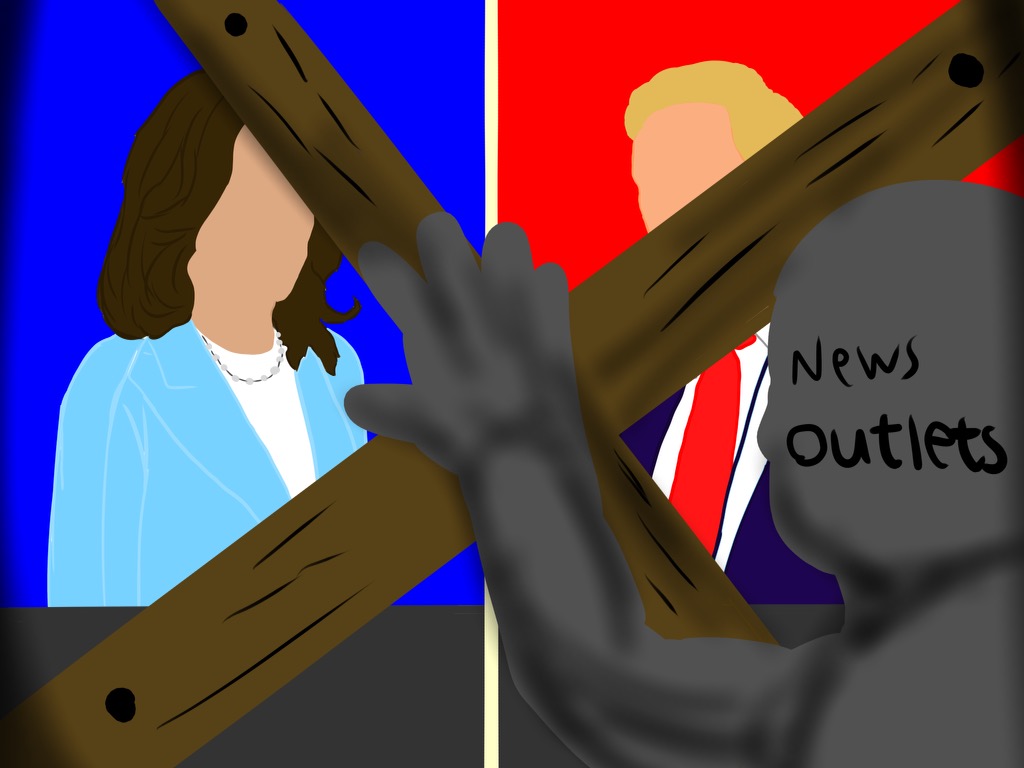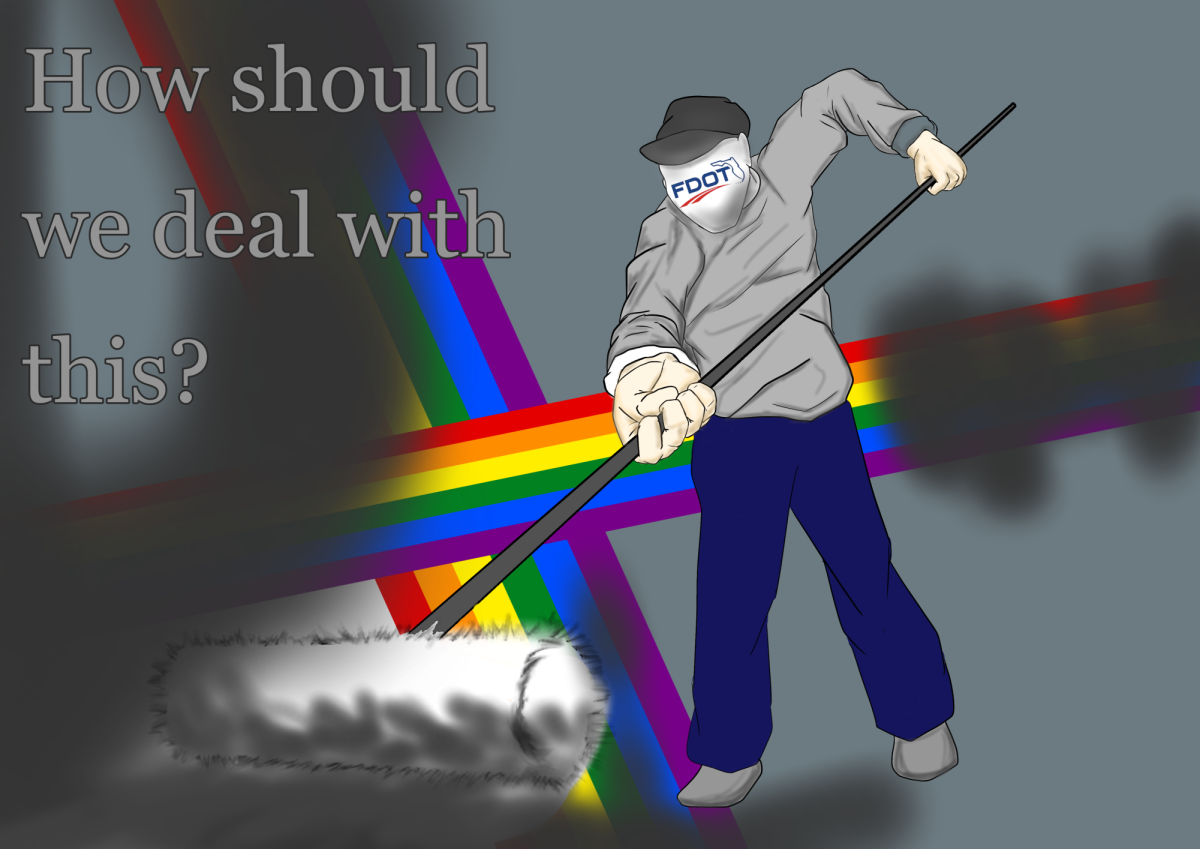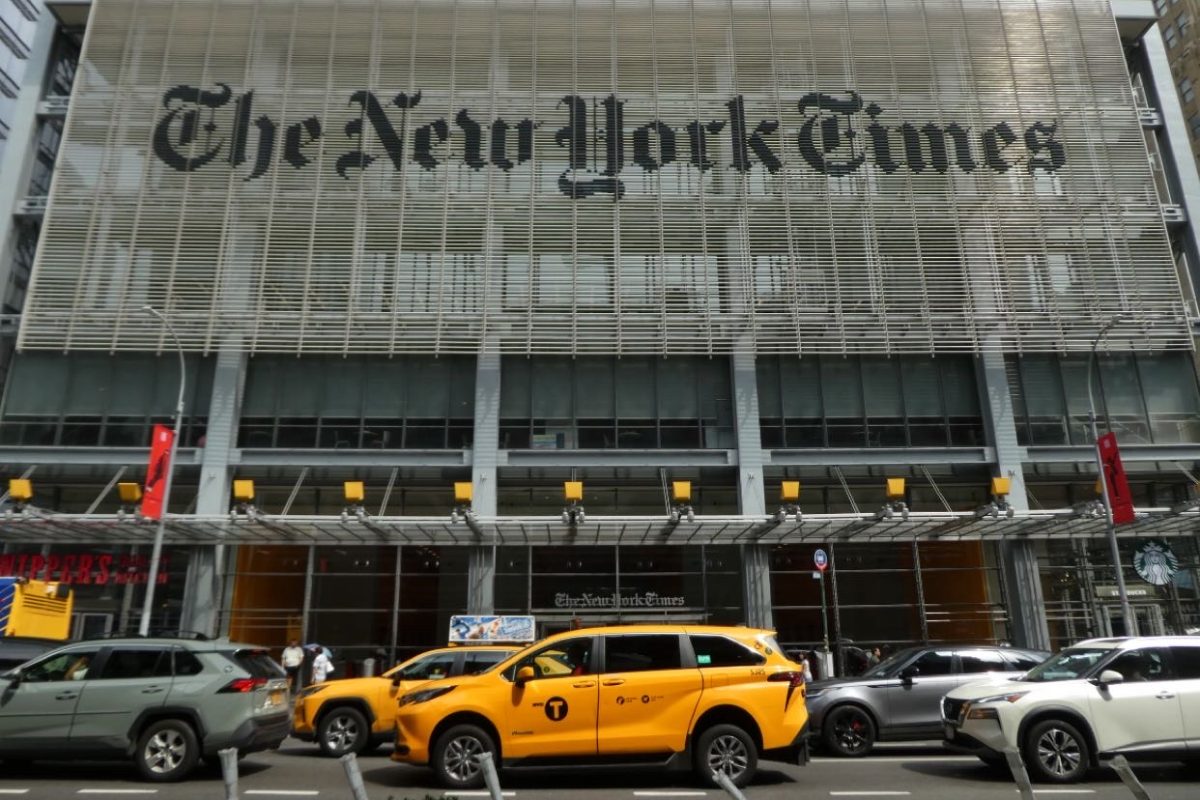The Washington Post’s slogan, “Democracy Dies in Darkness,” represents the ideal standard of journalism that many reporters strive for: the desire to speak the truth, a virtue protected by the First Amendment. Yet, beneath the flames of fighting during the weeks leading up to the election, The Washington Post alongside several other major news outlets made the unanticipated decision to not endorse any presidential candidate for this election cycle on Oct. 25, only 11 days before Election Day, a decision that breaks a decades-long tradition of news outlets. While the decision to remain neutral in the presidential election is understandable given the hostility of the current political landscape, its abruptness and the lack of transparency removes any value that may have been gained from it.
Publications weren’t always neutral; in fact, when they were initially run by politicians to promote their own campaigns. Even as independent presses began to grow in popularity, many continued to endorse candidates. One argument for endorsements is that newspapers educate their readers with official stances on certain candidates, proving their own preferences and evidence as to why they believe they are correct. Unfortunately, in this day and age, most readers have already made their decisions based on their own thoughts and feelings. Knowledge about each candidate is also so accessible that creating an editorial with a specific stance would just be redundant. A more productive use of time would be taking a stance on underemphasized topics such as local elections that could benefit the readers by providing them with information on issues that they are less likely to have already made a decision on. Most publications already have an inevitable bias that attracts certain readers, so whether or not an individual reads the stance, they are unlikely to change their minds. It is superfluous to post a story that is only going to further drive away other types of readers and increase the polarization of the political landscape.
With the lack of critical thinking of the masses when it comes to voting, it seems that the very practice of publications taking political stances is outdated. 92 of the nation’s 100 largest newspapers endorsed a Republican or Democratic candidate, while that number shrank to 54 in 2020. While following this trend may seem reasonable on the surface, the reasoning behind it is what readers see as controversial. According to PBS, there had already been a plan to publish a piece endorsing Kamala Harris, but it was stopped by Jeff Bezos, the owner of The Washington Post and founder of Amazon. Many hypothesize that this decision could have to do with not wanting to upset Donald Trump should he end up winning the 2024 Presidential Election due to the amount of influence that affluent individuals have on the government. Such an obvious display of silence is demoralizing as a country, going to show that the press cannot be trusted. While many may point out that faith in mainstream media is already low for obvious reasons. This instance makes it truly visible.
Instead of passively consuming news without taking a second glance to confirm its validity, individuals should be actively encouraged to do their own research on each political candidate rather than simply choosing based on what a news source advises. Not only was this a decision of cowardice on the part of the company owners, but it also hurt the publications themselves. For example, The Washington Post lost 250,000 subscribers and three editorial board members resigned. The decision to post a stance is made by an editorial board, which does not affect the other news rooms. Even so, many readers lack media literacy skills and cannot differentiate between an editorial and a news piece. People are fed polarizing media daily without being aware of what is and isn’t fact vs. opinion.
Looking ahead, it is unknown whether or not newspapers will continue this new trend of neutrality, but it is a step in the right direction for democracy. Even though the timing of this decision undoubtedly raises suspicion of strategic and corrupted moves, by being neutral, the divide amongst American political parties can hopefully be lessened one step at a time.










